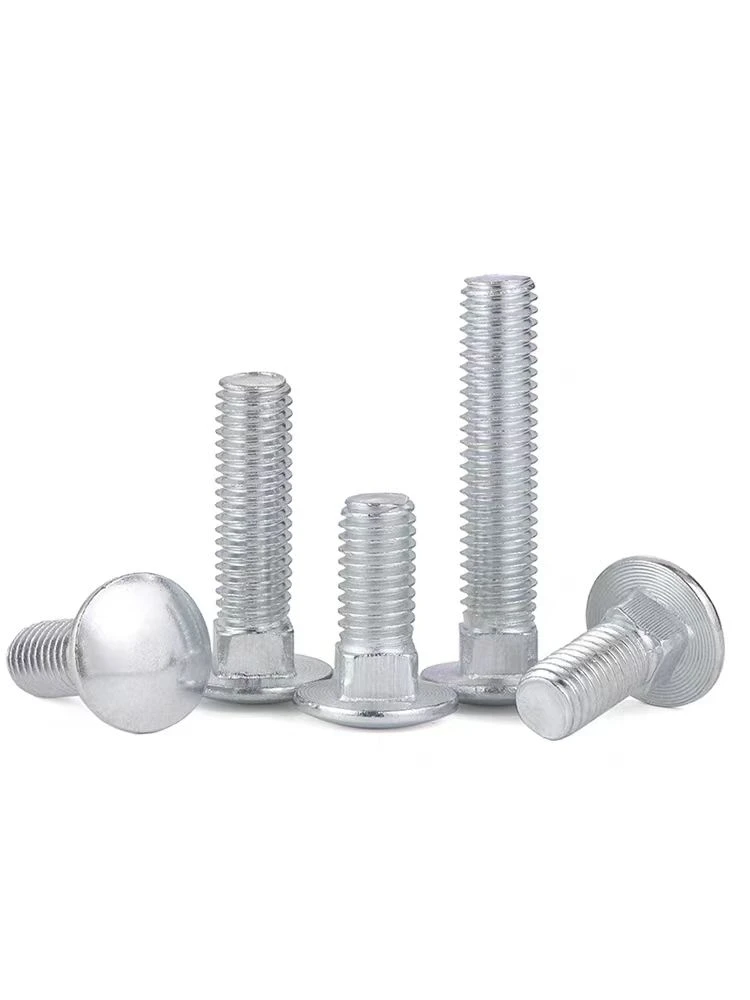

Hot-Dipped Galvanized Hex Bolts for Enhanced Corrosion Resistance and Durability in Construction Applications
Des . 03, 2024 14:52 Back to list
Hot-Dipped Galvanized Hex Bolts for Enhanced Corrosion Resistance and Durability in Construction Applications
Understanding Hot Dipped Galvanized Hex Bolts Benefits and Applications
Hot dipped galvanized hex bolts are essential components widely used in the construction, manufacturing, and automotive industries. These fasteners are recognized for their durability, strength, and corrosion resistance, making them a preferred choice for various applications. This article delves into the characteristics, benefits, and typical uses of hot dipped galvanized hex bolts.
What are Hot Dipped Galvanized Hex Bolts?
Hex bolts are fasteners with a hexagonal head designed for use with a wrench. They are commonly used in conjunction with nuts and washers to secure two or more objects together. The term hot dipped galvanized refers to the process of coating these bolts with a layer of zinc. This is achieved by immersing the bolts in molten zinc, resulting in a thick, robust coating that provides exceptional protection against rust and corrosion.
Benefits of Hot Dipped Galvanized Hex Bolts
1. Corrosion Resistance One of the most significant advantages of hot dipped galvanized hex bolts is their superior corrosion resistance. The zinc coating acts as a barrier between the steel and moisture, preventing rust formation even in harsh environments. This makes them particularly suitable for outdoor applications or in areas with high humidity.
2. Durability The hot dipping process creates a thick, bonded layer of zinc that is much more resistant to wear and tear compared to other types of galvanization. This durability ensures that the bolts maintain their integrity over extended periods, reducing the need for frequent replacements.
3. Cost-Effectiveness While the initial cost of hot dipped galvanized hex bolts may be slightly higher than non-galvanized options, their longevity and reduced maintenance costs make them a more economical choice in the long run. Businesses benefit from fewer disruptions and repairs, leading to increased efficiency.
4. Versatility Hot dipped galvanized hex bolts are versatile and can be used in a wide range of applications, including construction, machinery assembly, and automotive manufacturing. Their robust construction allows them to perform well under high loads and stress, making them suitable for critical applications.
hot dipped galvanized hex bolts

5. Thread Integrity The hot dipping process does not adversely affect the threads of the bolts, ensuring that they maintain their functionality and strength. This is crucial for applications where precision and load-bearing capacity are vital.
Applications of Hot Dipped Galvanized Hex Bolts
Hot dipped galvanized hex bolts are utilized in various industries, owing to their unique properties. Some common applications include
1. Construction In the construction sector, these bolts are frequently used for securing steel structures, bridges, and other infrastructure. Their corrosion resistance is particularly valuable in outdoor projects exposed to the elements.
2. Manufacturing In manufacturing plants, hot dipped galvanized bolts are integral to assembling machinery and equipment. Their ability to withstand heavy loads makes them ideal for high-stress applications.
3. Automotive The automotive industry employs hot dipped galvanized hex bolts for assembling various vehicle components. The bolts help ensure the safety and reliability of vehicles, particularly in components that are exposed to moisture and potential rust.
4. Agriculture Agricultural equipment often operates in moist environments, requiring durable fasteners. Hot dipped galvanized hex bolts provide the necessary strength and corrosion resistance for farming machinery.
Conclusion
Hot dipped galvanized hex bolts offer a combination of strength, durability, and corrosion resistance that makes them indispensable in many sectors. Their versatility allows for a wide range of applications, from construction and manufacturing to automotive and agricultural uses. As industries continue to seek reliable and cost-effective fastening solutions, the demand for hot dipped galvanized hex bolts is likely to remain strong, ensuring their continued relevance in modern engineering and manufacturing processes. Whether you are a contractor, manufacturer, or engineer, understanding the benefits and applications of these fasteners can enhance your project outcomes and ensure long-lasting results.
Latest news
-
Hot Dip Galvanized Bolts-About LongZe|High Strength, Corrosion Resistance
NewsJul.30,2025
-
High-Strength Hot Dip Galvanized Bolts - Hebei Longze | Corrosion Resistance, Customization
NewsJul.30,2025
-
Hot Dip Galvanized Bolts-Hebei Longze|Corrosion Resistance&High Strength
NewsJul.30,2025
-
High-Strength Hot-Dip Galvanized Bolts-Hebei Longze|Corrosion Resistance&High Strength
NewsJul.30,2025
-
Hot Dip Galvanized Bolts-Hebei Longze|Corrosion Resistance&High Strength
NewsJul.30,2025
-
Hot Dip Galvanized Bolts - Hebei Longze | Corrosion Resistance, High Strength
NewsJul.30,2025

